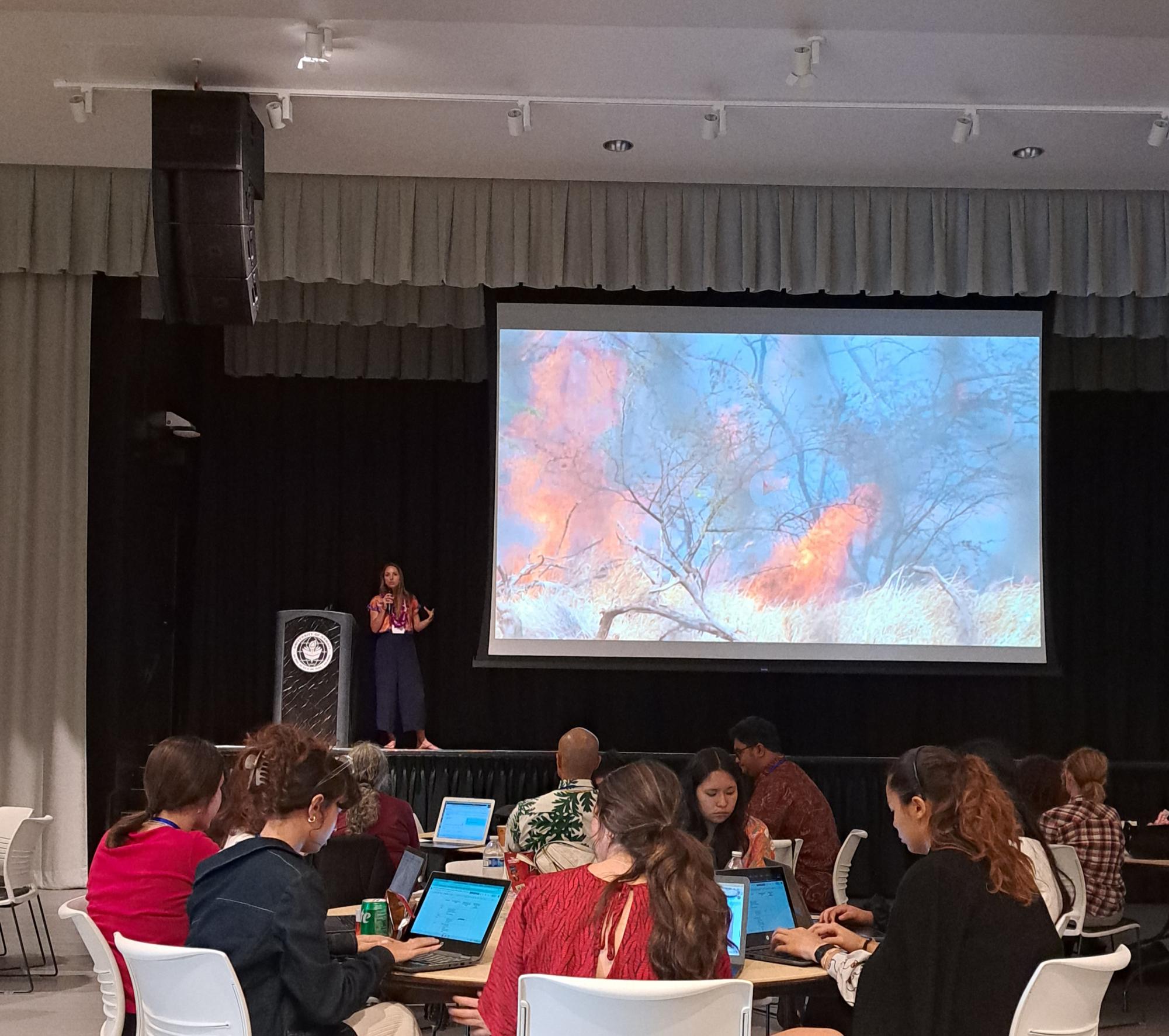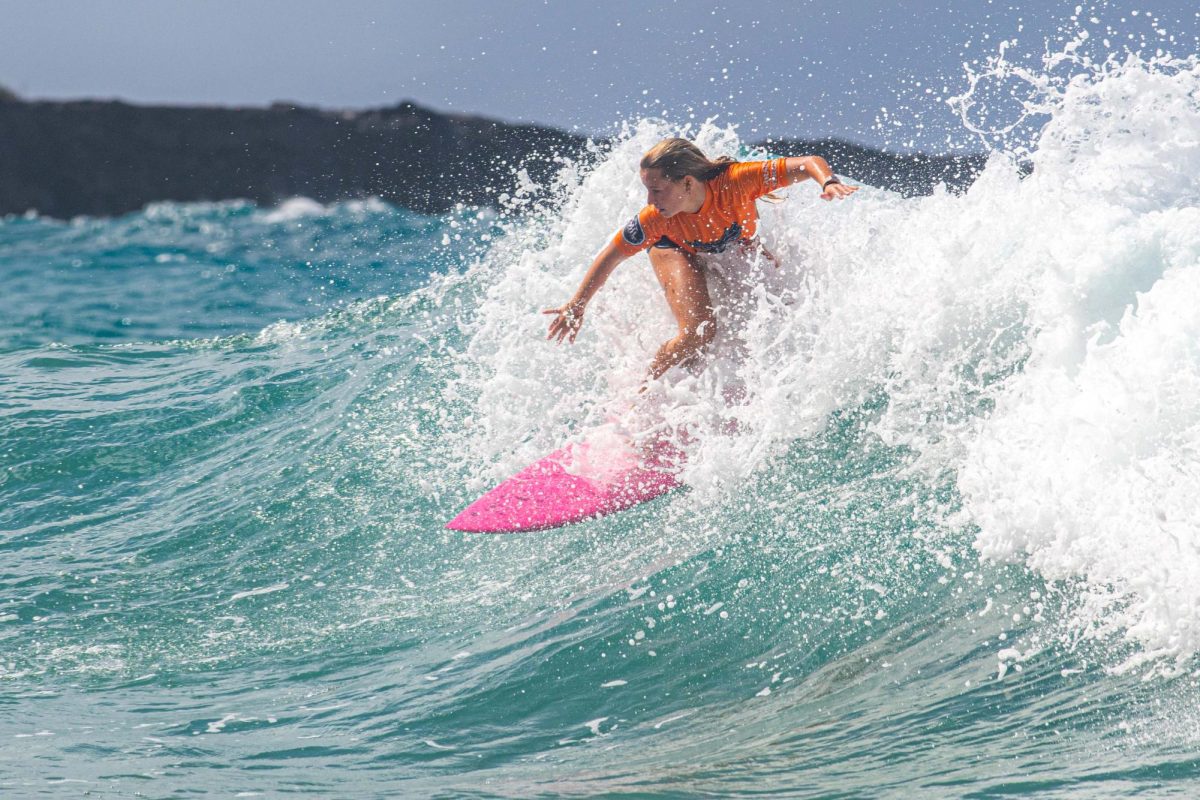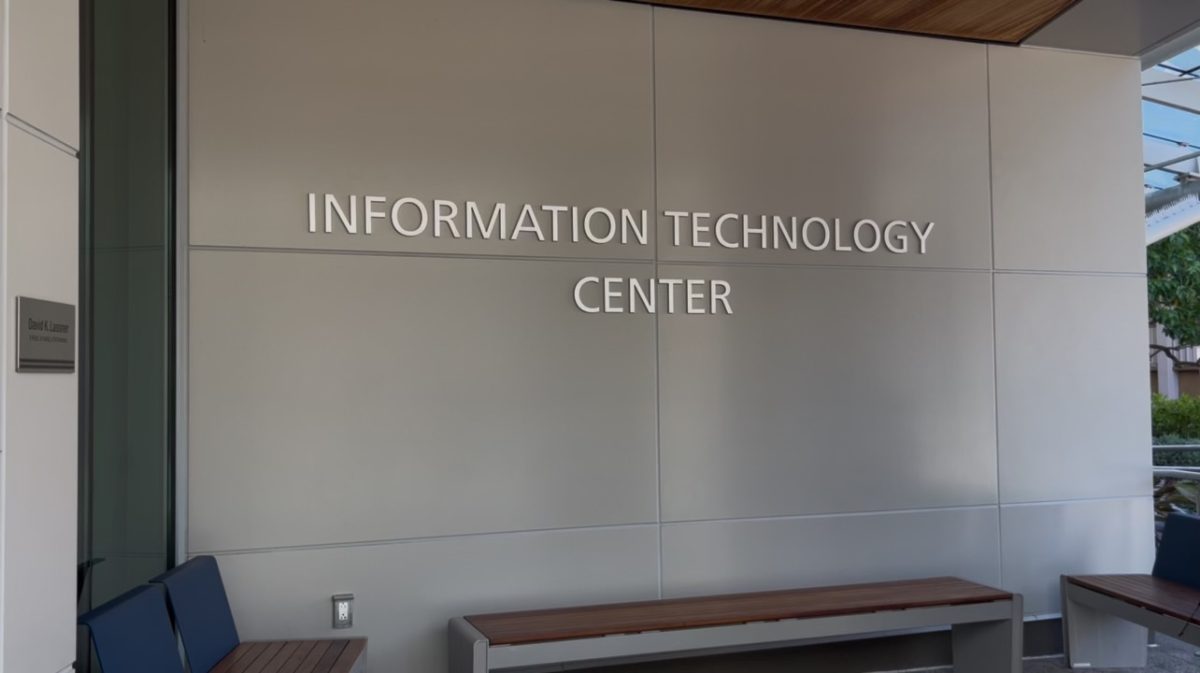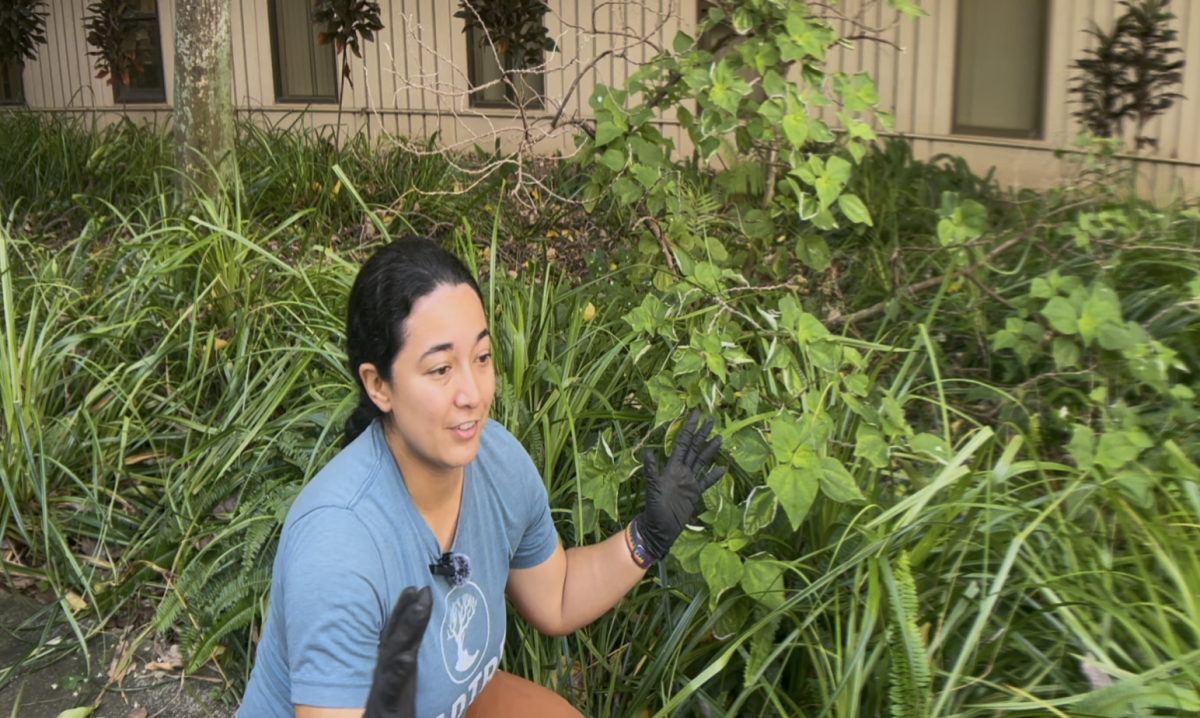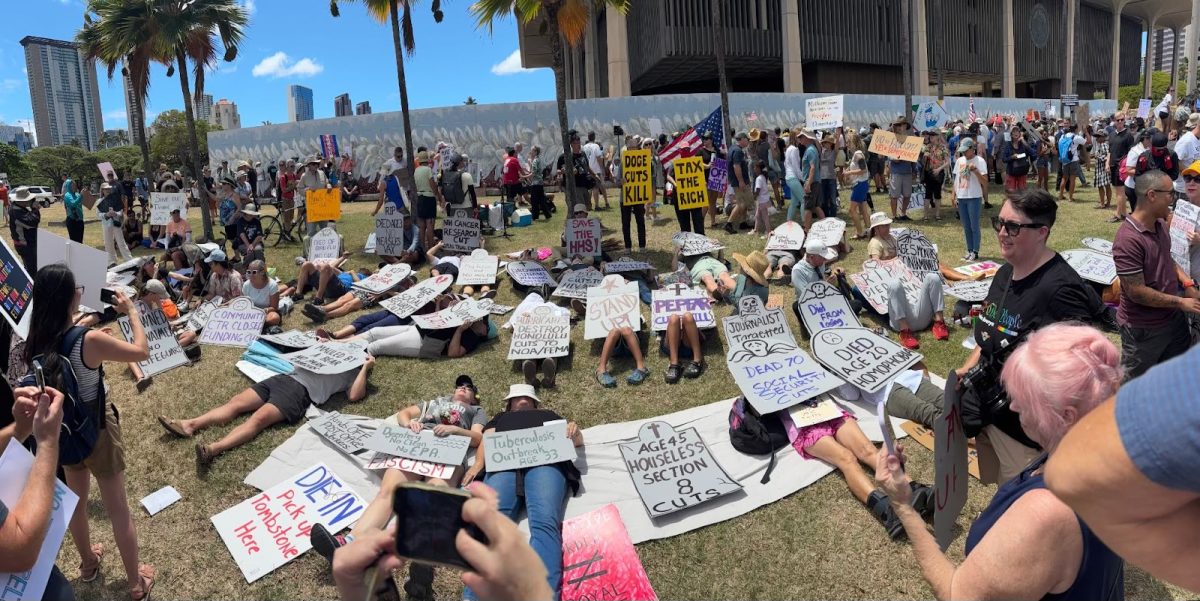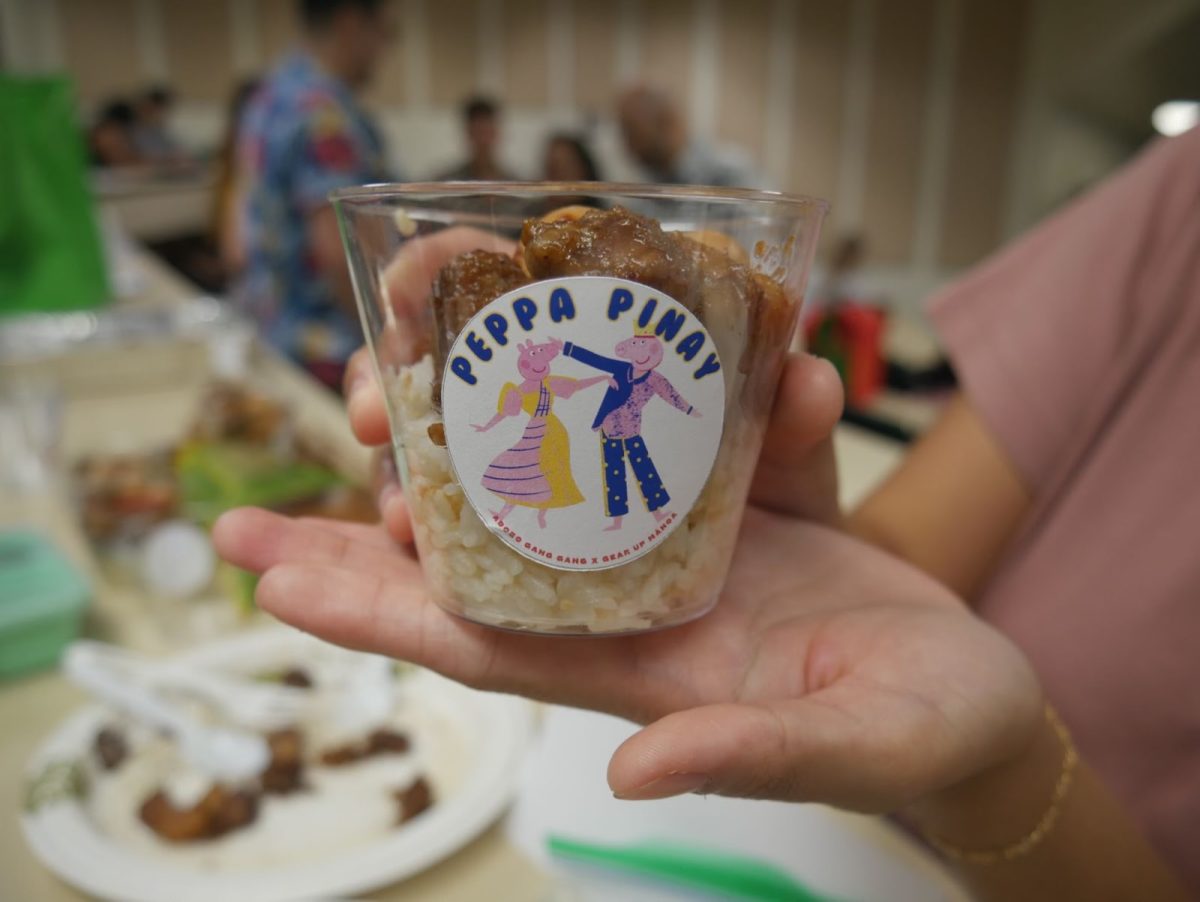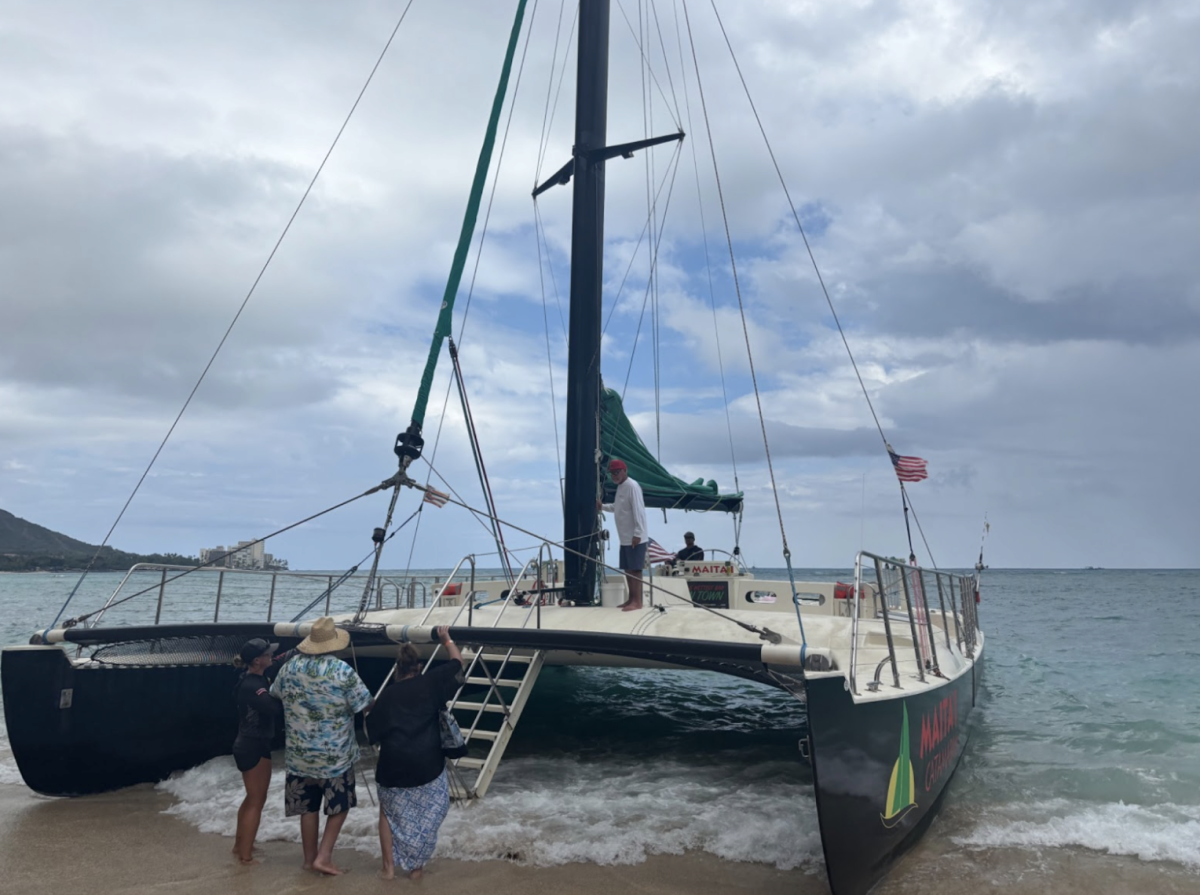Some reporters actively experience trauma while covering stories that hit close to home. Former Hawaii News Now reporter Marina Riker, a Maui resident, for example, became part of the destruction caused by recent wildfires on the island.
“Since the fires, I actually left journalism,” Riker said. “It is so important to talk about the effects of trauma in our industry, because that is an integral part of what we do every single day. As reporters, you’re going to be exposed to it.”
While having suffered personally during the tumultuous event, Riker advised attendees of the Society of Professional Journalists conference at UH this week about the value of trauma-informed reporting. Riker emphasized several facets of reporting that were brought to the forefront for her as being part of the community that was impacted.
“There are things you can do as a journalist that can enable you to do your job in a way where you can have impact on the world and also take care of the people you are interviewing who are part of this traumatic event,” Riker said.
Advocacy for self is an example, Riker said, especially when topics can be traumatic. With trauma-informed practices, she said, learning how to mitigate sensitive situations can warrant better interviews during which difficult questions are only addressed one time rather than revisited over and over.
In addition to navigating hard situations, Riker said, responsibilities as a reporter include serving a community with information it needs. Sometimes this information is different than what other readers want to hear, she said, but in terms of Lahaina and its fires, knowing what to apply to, in terms of support systems, and how, was instrumental in providing necessary information to readers.
“Our work is based on relationships in our newsroom, and with the communities that we serve,” she said. “Especially during times like this, it’s important that we do everything we can to uphold the trust within those communities. It’s a lot harder to gain trust back than it is to lose it. At this time in our society and democracy, we have rigorous reporting that is nuanced, accurate and factual, that helps everyone and understand the world around them.”
